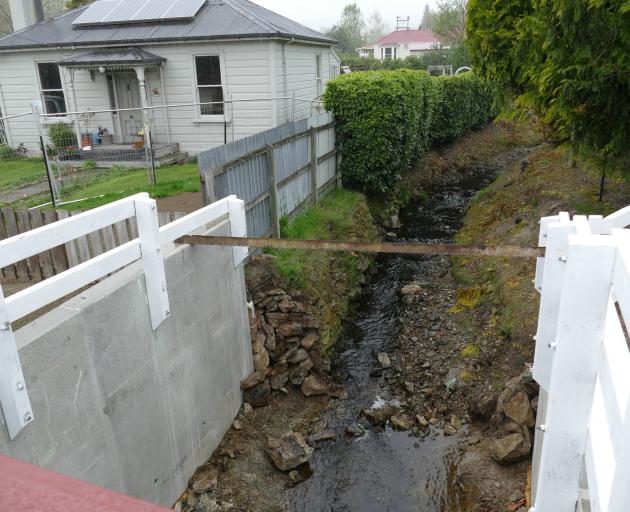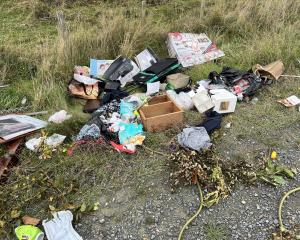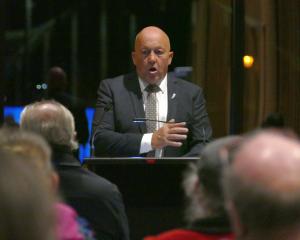
Several properties adjoining the town’s Hospital Creek were flooded during a severe downpour in July 2017, which left the town centre under about half a metre of water.
A second, less severe event in November 2018 reinforced the need for a significant programme of works from the Clutha District Council to address damaged culverts and blocked watercourses.
Since that time, council contractors have cleared most of the town’s stormwater drains, and repaired or replaced several culverts.
However, work on Hospital Creek has been hampered by questions regarding ownership of the stream, which runs through about 15 private gardens.
In a report to the most recent Lawrence Tuapeka Community Board meeting, council service delivery group manager Jules Witt explained homeowners had two main options regarding future ownership and maintenance of the creek.
These would be canvassed publicly during next year’s long-term plan consultation.

Mr Witt said either the council could adopt the creek — meaning it would require permanent access through homeowners’ properties — or individual homeowners could remain responsible for their respective sections, and associated costs.
"Our report from Stantec suggests a rough order of costs of $362,000 plus GST to address known issues, and affected parties and the wider Clutha community need to have their say on how that should be paid for, and what the best way is to ensure the enduring effectiveness of the creek as a stormwater channel.
"We’d like people to begin thinking about these things now so they can make an informed decision next year."
Were the council to adopt the creek, policy dictated associated costs would be spread across the whole district under the stormwater rate.
Pickled Pigeon Cottage Airbnb owner Penny Archer, who owns a Lismore St property adjoining the creek, said both options had pros and cons.
"If it remains in private ownership, it only takes one person not maintaining the creek properly to affect everyone downstream. But if council adopts it, those not directly affected could argue they shouldn’t have to pay for what could be considered a private issue.
"But given these extreme [flood] events are becoming more common, on balance I think it needs the overarching approach of an official body like council."
The council would contact affected parties with more information shortly, Mr Witt said.












